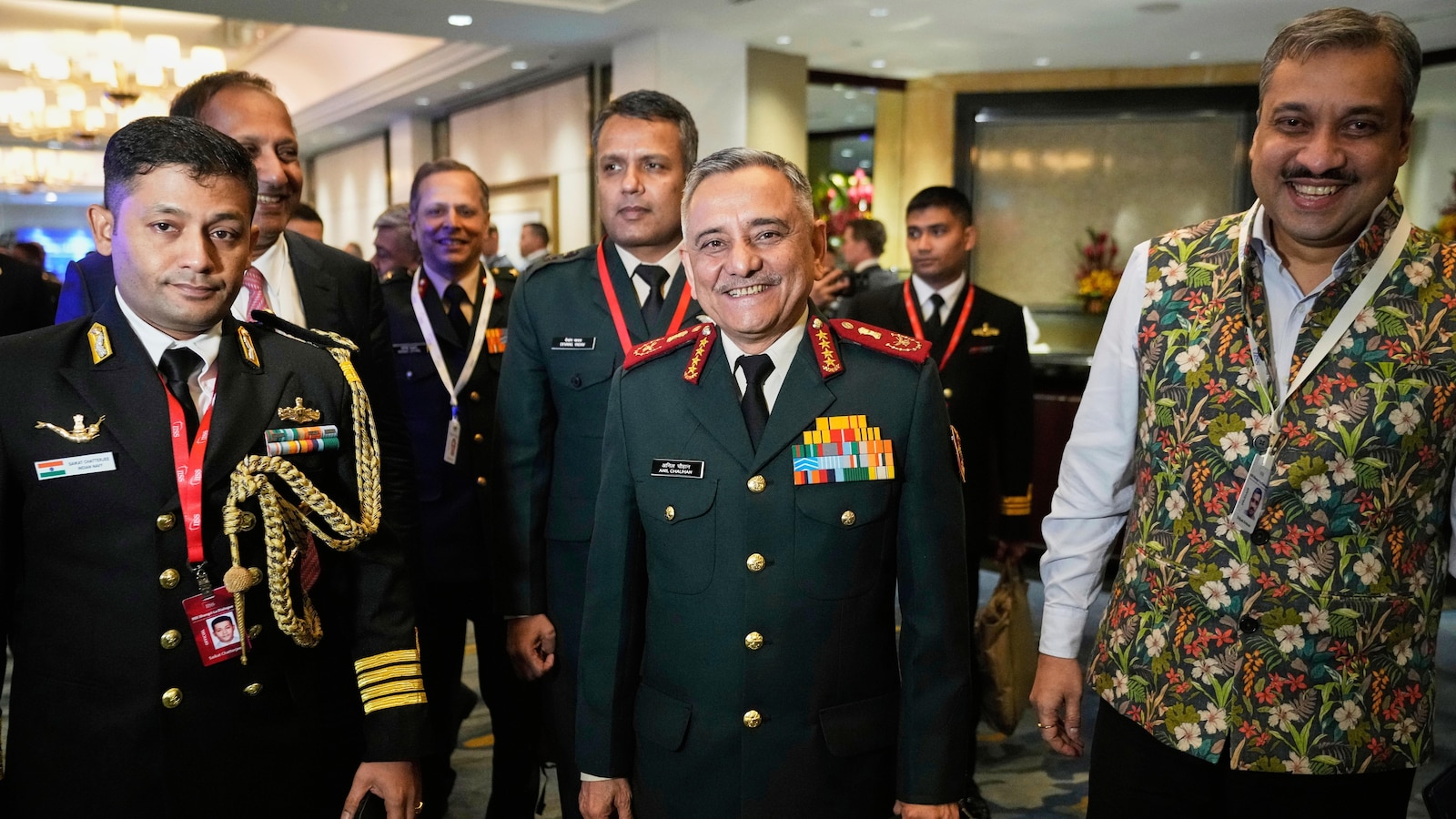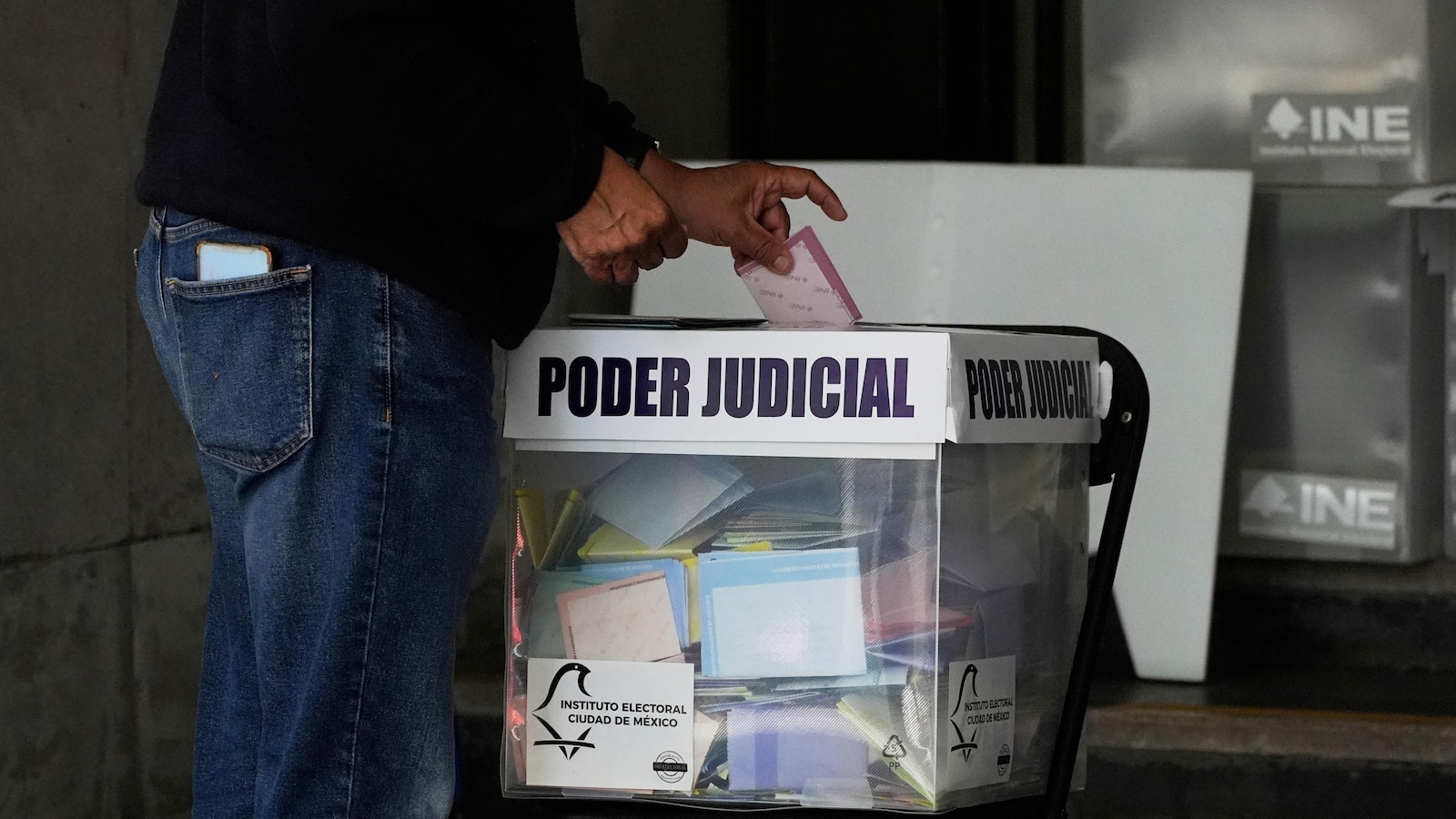[ad_1]
SINGAPORE — China and North Korea’s help for Russia in its struggle in opposition to Ukraine has uncovered how traces between areas have blurred, and the necessity for a worldwide strategy towards protection, high safety officers mentioned Sunday.
North Korea has despatched troops to struggle on the entrance traces in Ukraine, whereas China has supported Russia economically and technologically whereas opposing worldwide sanctions.
Lithuanian Defense Minister Dovilė Šakalienė informed delegates on the Shangri-La Dialogue, Asia’s premiere protection discussion board, that if Ukraine had been to fall, it might have a ripple impact in Asia and instructed it may embolden China in its territorial claims on Taiwan and just about all the South China Sea.
“If Russia prevails in Ukraine, it’s not about Europe. It’s not about one region,” she said. “It will send a very clear signal also to smaller states here in Indo-Pacific that anyone can ignore their borders, that any fabricated excuse can justify invasion.”
The comments echoed those from French President Emmanuel Macron as he opened the conference on Friday advocating for greater European engagement in the Indo-Pacific.
On Saturday, U.S. Defense Secretary Pete Hegseth suggested European countries should focus their defense efforts in their own region and leave the Indo-Pacific more to the U.S., but Šakalienė said the regions were clearly intertwined.
“It’s not a secret that when we talk about the main perpetrators in cyber security against Japan it’s China, Russia and North Korea,” she said.
“When we talk about main cyber security perpetrators against Lithuania it’s Russia, China and Belarus — two out of the three are absolutely the same.”
She added that “the convergence of Russia, China, Iran, and North Korea into an increasingly coordinated authoritarian axis,” demands a unified response. Iran has been a key supplier of attack drones to Russia for its war effort.
“In this context, the United States’ strategic deal with Indo-Pacific is each justified and mandatory, however this isn’t America’s duty alone,” she mentioned.
Australian Defense Minister Richard Marles informed reporters on the sidelines that his principal takeaway from the three-day convention, hosted by the International Institute for Strategic Studies, was the “real intent in the way in which European countries have engaged” within the debates.
“It reflects the sense of connection, interconnectedness … between Indo-Pacific on the one hand and the North Atlantic on the other,” he mentioned.
China despatched a lower-level delegation from its National Defense University this yr to the convention, however its Foreign Ministry on Sunday responded to feedback from Hegseth that Beijing was destabilizing the area and making ready to presumably seize Taiwan by drive.
“No country in the world deserves to be called a hegemonic power other than the U.S. itself, who is also the primary factor undermining the peace and stability in the Asia-Pacific,” it mentioned, whereas reiterating its stance that the Taiwan concern was an inside Chinese matter.
“The U.S. must neve play with fire on this question,” the ministry mentioned.
Philippines Defense Secretary Gilberto Teodoro Jr, whose nation has been concerned in more and more violent clashes with China over competing claims within the South China Sea, scoffed at the concept that the U.S. was the issue.
“What the Chinese government considers fair and just may stand in stark contrast to the norms and values accepted by the rest of the world, especially the smaller countries,” he mentioned.
“To envision a China-led international order, we only need to look at how they treat their much smaller neighbors in the South China Sea.”
He also underscored the international implications of the tensions in the Indo-Pacific, noting that the South China Sea was one of several maritime routes that are “arteries of the global economy.”
“Disruption in any of these maritime corridors triggers ripple effects across continents, impacting trade flows, military deployments, and diplomatic posture,” he said.
Singapore’s Defense Minister Chan Chun Sing said China missed an opportunity to have its voice heard by not sending its own defense minister, but it was still incumbent upon others to reach out to Beijing to try and build bridges and prevent misunderstandings.
Singapore has close ties to both the U.S. and China, and is part of the regionally influential Association of Southeast Asian Nations along with the Philippines and others.
“It is in the interest of all of us to work with China, and it is also in the interest of China to work with everyone else in the world,” he mentioned. “It is in the interest of all of us to have a deeper understanding of China’s fears, concerns and aspirations, just as it is important for China to understand how the rest of the world perceives China.”
[ad_2]



